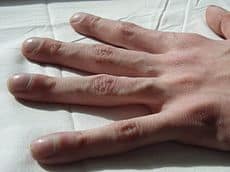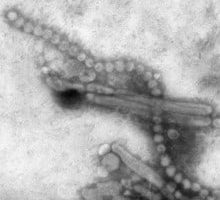american society for microbiology
Tips from the journals of the American Society for Microbiology
Researchers Select Microbes to Improve Chocolate
It may seem hard to imagine improving on the world’s best chocolates, but that is the goal of a team of microbiologists from the Free University of Brussels, Belgium. Raw cocoa beans have an astring…
New class of biomolecules triggered in response to respiratory virus infection
For the first time, scientists have discovered that a poorly understood class of RNA produced in a mammal’s cells during a respiratory virus attack may affect the outcome of the infection. Their findings are reported today in mBio, a journal of t…
Tips from the journals of the American Society for Microbiology
New Compound May be Effective Against Chagas’ Disease
A new compound may offer an effective drug candidate against the deadly tropical infection, Chagas’ disease say researchers from Brazil. They report their findings in the August 2010 issue of …
Researchers find a new way to potentially thwart anthrax
In a new study, NYU School of Medicine researchers have found what may be an Achilles’ heel of deadly anthrax — a system that the bacteria use to communicate their presence to others of their kind. The researchers, Martin Blaser, M.D., the Frederick King Professor and Chairman of the Department of Medicine, and Professor of Microbiology and graduate student Marcus Jones, describe a “quorum-sensing system” in anthrax that is a type of bacterial “calling card.” Disrupting this system may open new avenues to prevention and treatment of anthrax, says Dr. Blaser.
Green tea boosts antimicrobial properties of toothpaste
Studies conducted at Pace University have indicated that green tea extracts (GTE) and polyphenol (PP) have an adverse effect on bacteria that cause strep throat, dental caries, and other infections. Additionally, the research suggests that the oral agents such as toothpaste and mouthwash are more effective in fighting pathogenic microbial agents, such as viruses, with the addition of GTE and PP. Researchers present their findings today at the 103rd General Meeting of the American Society for Microbiology.
New herpes treatment from common herb
A new anti-herpes agent derived from a common herb effectively treats and prevents the disease in animals. Researchers from Dalhousie University in Nova Scotia present their data today at the 103rd General Meeting of the American Society for Microbiology.
Single dose oral smallpox drug shown effective in cowpox-infected mice
Two versions of an oral drug that halts the deadly action of smallpox and related orthopox viruses have been shown by researchers in Alabama and California to be effective in cowpox-infected mice, whether given three to five days before or two to three days after infection. The study evaluated the dosage regimen and effectiveness of four different ether lipid analogs of cidofovir (CDV), a compound that blocks the activity of variola, the virus that causes smallpox, cowpox, vaccinia and other orthopox viruses. Shown most effective in treating lethal cowpox infection in mice were hexadecyloxypropyl-CDV (HDP-CDV) and octadecyloxyethyl-CDV (ODE-CDV). In addition, the study pinpointed the time period for effectiveness when the drug is administered prior to or after infection.





